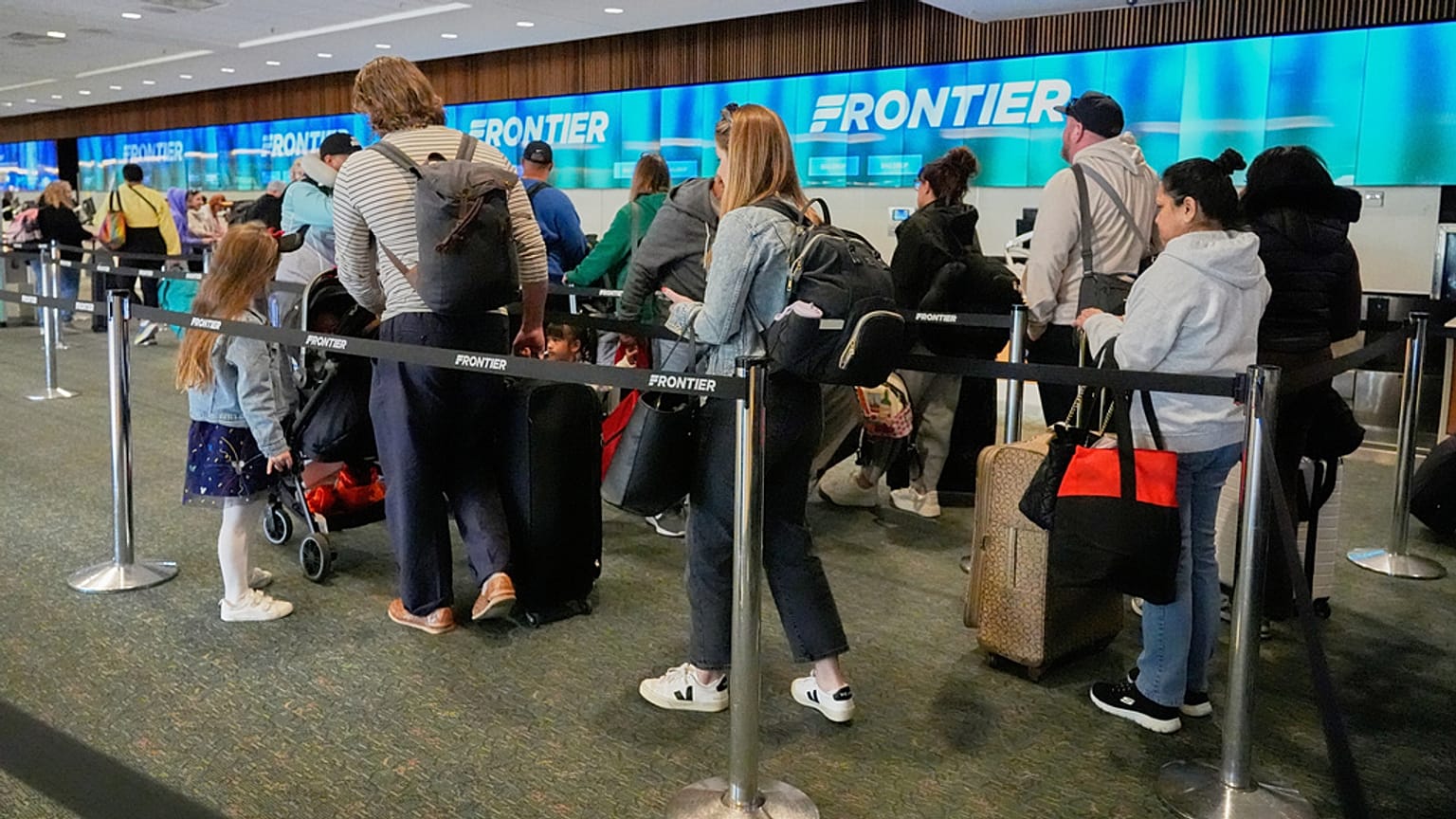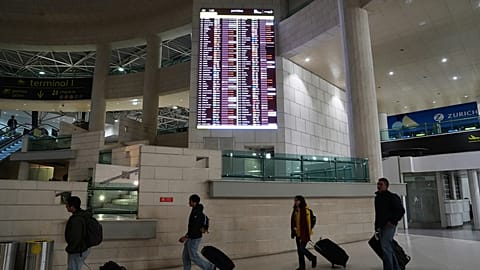An estimated 5.2 million passengers have been affected by staffing-related delays or cancellations since the government shutdown began on 1 October.
Airlines have cancelled more than 10,000 flights across the US since the Federal Aviation Administration (FAA) ordered cuts last week.
The reduction in service was required to ease demand on control towers, which were short-staffed during the federal government shutdown.
Airlines say they are optimistic they can resume normal operations just a few days after the government lifts its order to reduce flights at 40 busy airports, but it's not clear how soon that will happen even though the federal shutdown is over.
Airport disruptions, flight cancellations and economic losses won’t disappear right away. Here’s how the air travel network continues to be impacted.
US flight cuts capped at 6 per cent
The Federal Aviation Administration announced on Wednesday night that airlines won't have to cut more than 6 per cent of flights at affected airports because air traffic controller staffing has improved significantly in the last few days.
Originally, the order that took effect last Friday called for those flight cuts to increase to 8 per cent on Thursday and top out at 10 per cent on Friday.
A number of air traffic controllers missed work while they were going without pay during the shutdown, and the spike in understaffing at airport towers and regional control centres prompted the flight cut order due to concerns about safety.
The existing shortage of several thousand air traffic controllers is so bad that even a small number of absences in some locations caused problems.
Officials at the FAA and the Transportation Department didn't offer any updates Thursday morning about when they will decide to lift the order.
Transportation Secretary Sean Duffy has said the decision will be based on the safety data that experts at the FAA are watching closely.
An estimated 5.2 million passengers have been affected by staffing-related delays or cancellations since the government shutdown began on 1 October, according to Airlines for America, an industry trade group.
Airlines are 'eager to resume normal operations'
The airlines say they will be ready and expect that normal operations will resume within three or four days after the order is lifted.
By late Thursday afternoon, only a little over 1,000 flights had been cancelled across the country. Aviation analytics firm Cirium said nearly 95 per cent of all flights nationwide on Thursday were on time.
“We are eager to resume normal operations over the next few days once the FAA gives clearance. We look forward to welcoming 31 million passengers—a new record—to our flights during the upcoming Thanksgiving travel period, beginning next Friday,” the Airlines for America trade group said Thursday.
Airlines will need to readjust after the flight cuts are lifted
However, some experts have suggested that problems might linger longer than that and could affect Thanksgiving travel.
It is difficult to predict whether the airlines will be able to recover from this as quickly as they do after a major snowstorm disrupts their operations and leaves planes and crews out of position.
The flight restrictions upended airline operations in just a matter of days. Many planes were rerouted and aren’t where they’re supposed to be.
Eric Chaffee, a Case Western Reserve professor who studies risk management, warned the disruptions could last weeks as airlines face “complex operational hurdles” and winter weather complicates recovery before Thanksgiving.
“It’s similar to if you start pulling threads out of a tapestry,” Chaffee said. “What you may find is that lots unravels in addition to what you are trying to remove.”
It seems travellers are taking note. The pace of airline ticket sales for Thanksgiving travel has slowed as holidaymakers reconsider flying.
Aviation analytics firm Cirium said ticket sales during the busy late November season are still expected to be up over last year, but only slightly.


















